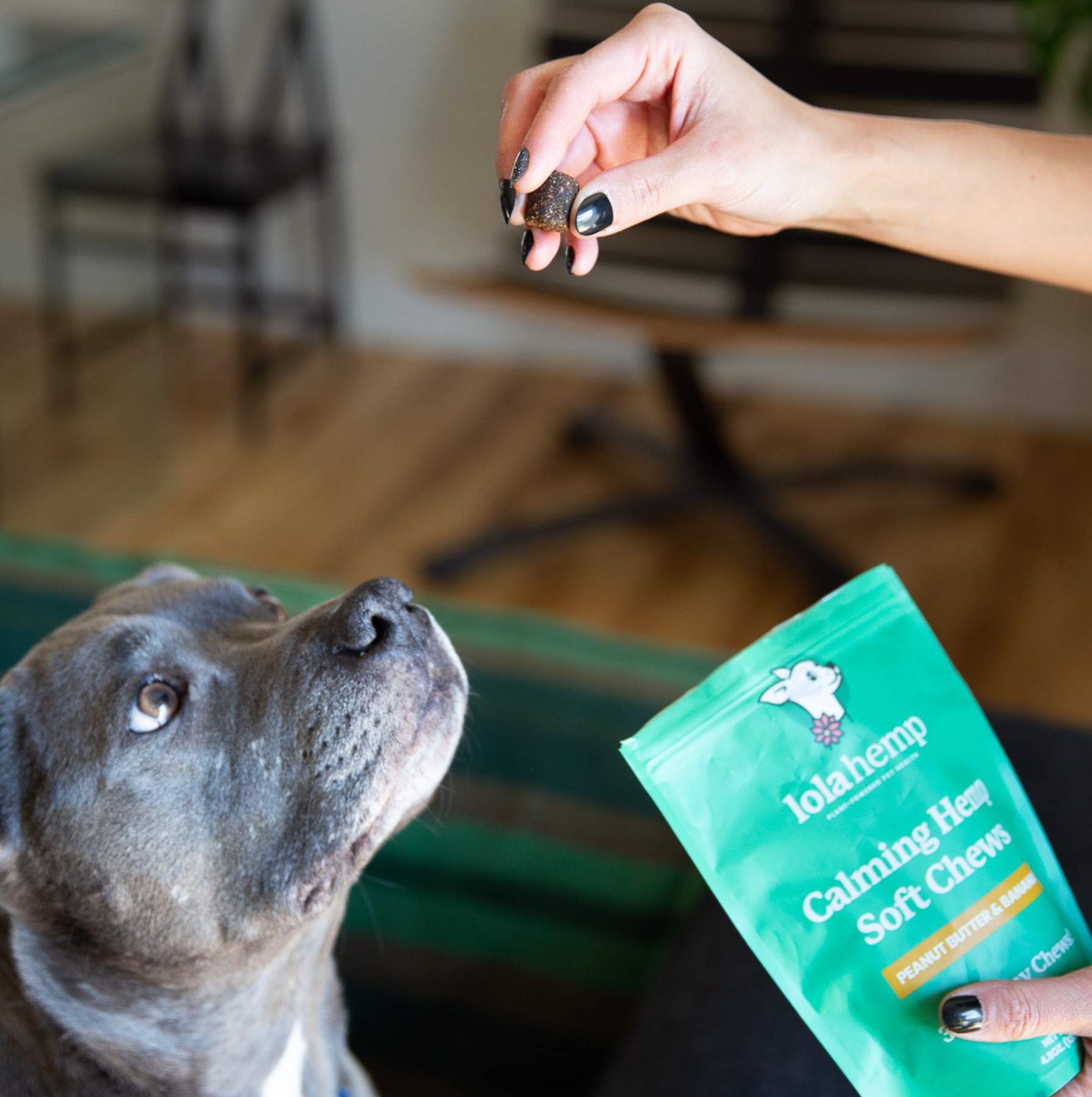Excessive barking in dogs is typically caused by lack of stimulation, anxiety, or physical discomfort of some kind. CBD may be able to help reduce your dog's barking if the behavior is caused by an underlying discomfort or anxiety.
This article discusses how CBD could help your dog reduce barking, giving you some additional peace and allowing your pooch to feel comfortable again. Let's take a look.
Can CBD Help to Reduce Barking in Dogs?
If your dog's barking is caused by something other than lack of stimulation, there's a chance that CBD could help a great deal. That said, there are different types of CBD products aimed at addressing different issues.
Look at the following sections to find the right solution for your dog's particular situation.
1. If Your Dog Barks Due to Stress:
CBD interacts with the endocannabinoid system to help dogs relieve emotional distress and maintain a calmer mood in the face of triggers. Research shows that even a single dose of CBD can reduce measures of stress in dogs.
If your dog's barking is stress related, CBD could help to reduce it even after the first dosage. The best results take a few weeks to culminate, however, as CBD builds in the body over a period of up to 9 months.
CBD is not guaranteed to benefit stress-related barking, although it has worked for many other dogs experiencing this issue.
2. If Your Dog Barks Due to Physical Discomfort:
Studies have shown CBD to decrease pain and increase mobility in dogs with an affirmative diagnosis of OA. It can support dogs with discomfort from various issues as well.
If your dog's discomfort is causing them to bark throughout the day, using CBD regularly to relieve some of that discomfort could help. It's important to note that pain is caused by many issues, so it's important to address the underlying condition to eliminate your dog's pain and reduce barking for good.
Still, CBD has helped countless dogs feel better and relieve discomfort, which may be the solution to your pooch's excessive barking. Results may start to show quickly, or they could take a few weeks to start showing.
Understanding 5 Types of Barking in Dogs
It’s key to identify why your dog is barking in the first place. Once you have correctly figured out what’s causing the behavior, the training options become more clear.
Although this guide addresses some of the more common kinds of barking in dogs, it is not a comprehensive list. If you’re unsure what might be at the root of your dog’s barking, consider hiring a professional dog trainer who uses positive reinforcement-based training methods to help.
Here are some possible causes:
1. Lack of Exercise
Problem: The most common reason dogs become problem barkers is simply that they are not getting enough exercise.
Young dogs (ages 0-3 years) and certain breeds (such as herding and working breeds) have much higher exercise needs than most people and other pets. When these needs are not met, barking, chewing, and neurotic behaviors can result.
Solutions: Ensure your pet’s exercise needs are met. For many dogs, a few daily walks are not enough. Add vigorous off-leash play and running to their routine.
- Training games such as fetch and tug
- Dog sports like flyball, agility, or dock diving
- Visits to dog parks for off-leash play
- Training your dog to use a treadmill
- Hiking or jogging together for dual fitness
2. Lack of Mental Stimulation
Problem: Dogs need mental stimulation as much as physical activity. Boredom can lead to problem barking.
Solutions: Training provides mental challenges and reinforces calm behavior. Use positive reinforcement to teach “sit,” “stay,” and “down.”
- Take a training class using positive reinforcement
- Teach tricks and chain them for more complex tasks
- Use puzzle toys for mental enrichment
- Practice impulse control with “stay” and “wait”
3. Separation Anxiety
Problem: Some dogs bark excessively when left alone. The cause may be separation anxiety.
Solutions: Gradually increase your dog’s comfort with separation. One study found CBD to be effective at reducing stress during separation, which may help when paired with training.
4. Demand Barking
Problem: Dogs often bark for attention or rewards, a behavior reinforced by owners giving in.
Solutions: Avoid rewarding barking with attention or treats. Instead, train quiet behaviors and reward calmness.
- Ignore barking and walk away
- Use brief “time outs” until quiet
- Reward “quiet” behaviors frequently
- Randomly reward calm moments
- Redirect barking into alternative commands

5. Anxiety Around Specific Triggers
Problem: Some dogs bark in response to triggers like mail delivery or car rides. This may reflect anxiety or reactive behavior.
Punishing this type of barking can worsen the problem, reinforcing fear responses. Instead, focus on desensitization and emotional reconditioning.
Solutions: Work with a professional trainer skilled in desensitization and conditioning. Use CBD to help your dog remain calmer during training and around triggers.
Conclusion
If your dog's discomfort or anxiety is causing them to bark excessively, a pet-safe CBD option could help to address those issues and reduce barking. It's important to discuss your pet's pain, anxiety, and unusual behavior with your veterinarian to address the root issues.
If you're curious to learn more about CBD oil for dogs, you can find resources and products on our website. Contact us if you'd like to learn something that we haven't addressed in this article.
Frequently Asked Questions about CBD and Dog Barking
Can CBD really stop my dog from barking?
CBD may help reduce barking caused by anxiety, stress, or discomfort. It won’t stop barking entirely but can help your dog feel calmer and less reactive.
How long does it take for CBD to calm a barking dog?
Some dogs show reduced stress within hours, while consistent results may take a few days or weeks of regular use.
What type of CBD works best for dogs that bark too much?
Full-spectrum CBD oils are often most effective, as they support the endocannabinoid system holistically. Always choose pet-safe, lab-tested products.
Is CBD safe for dogs with anxiety?
Yes, when dosed properly. CBD is generally well-tolerated and may help dogs experiencing separation anxiety or noise sensitivity.
Can I use CBD along with training to stop barking?
Yes. CBD can complement behavior training by helping your dog remain calm and focused during exercises and exposure to triggers.










